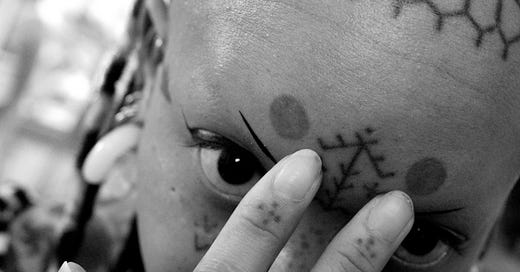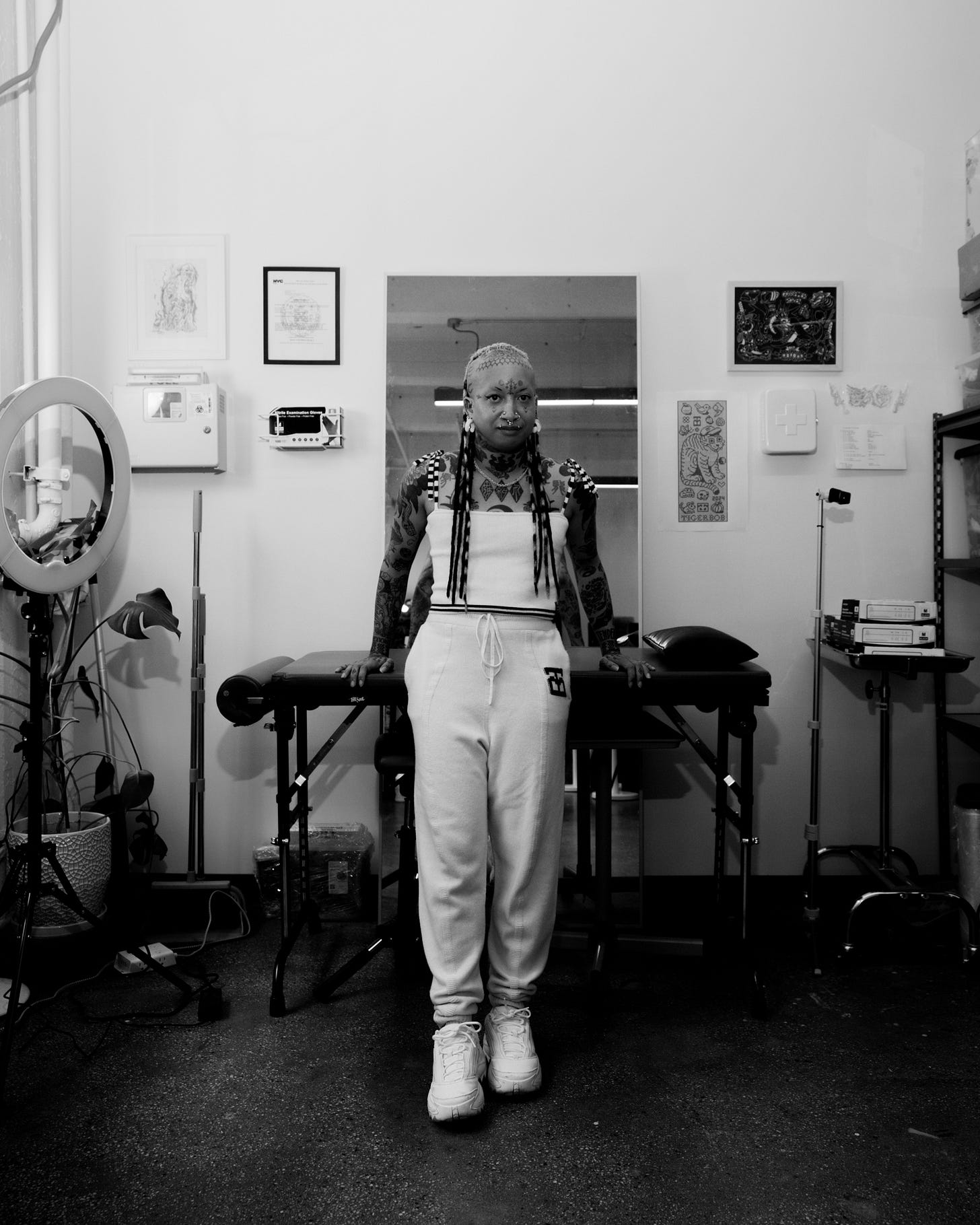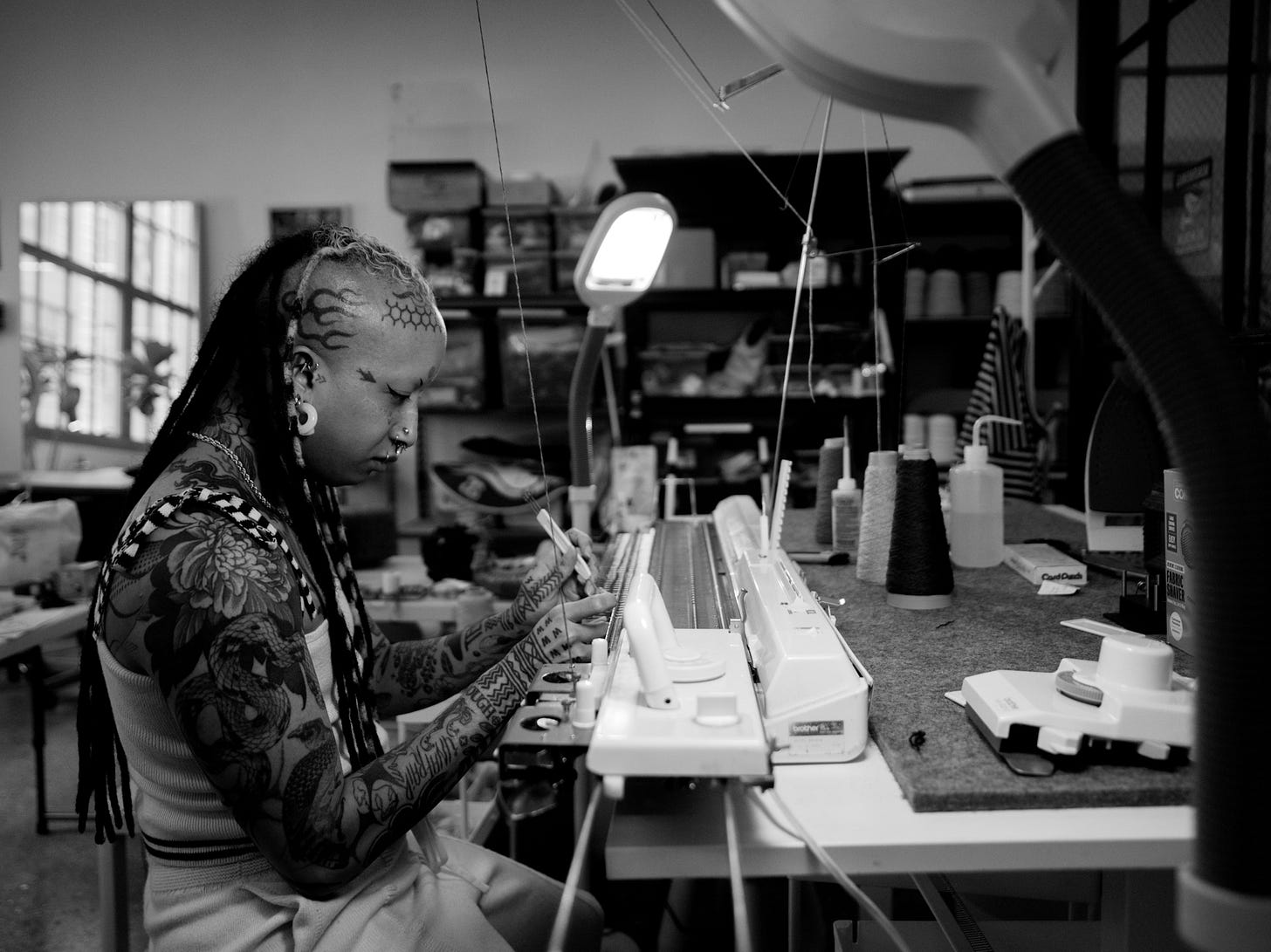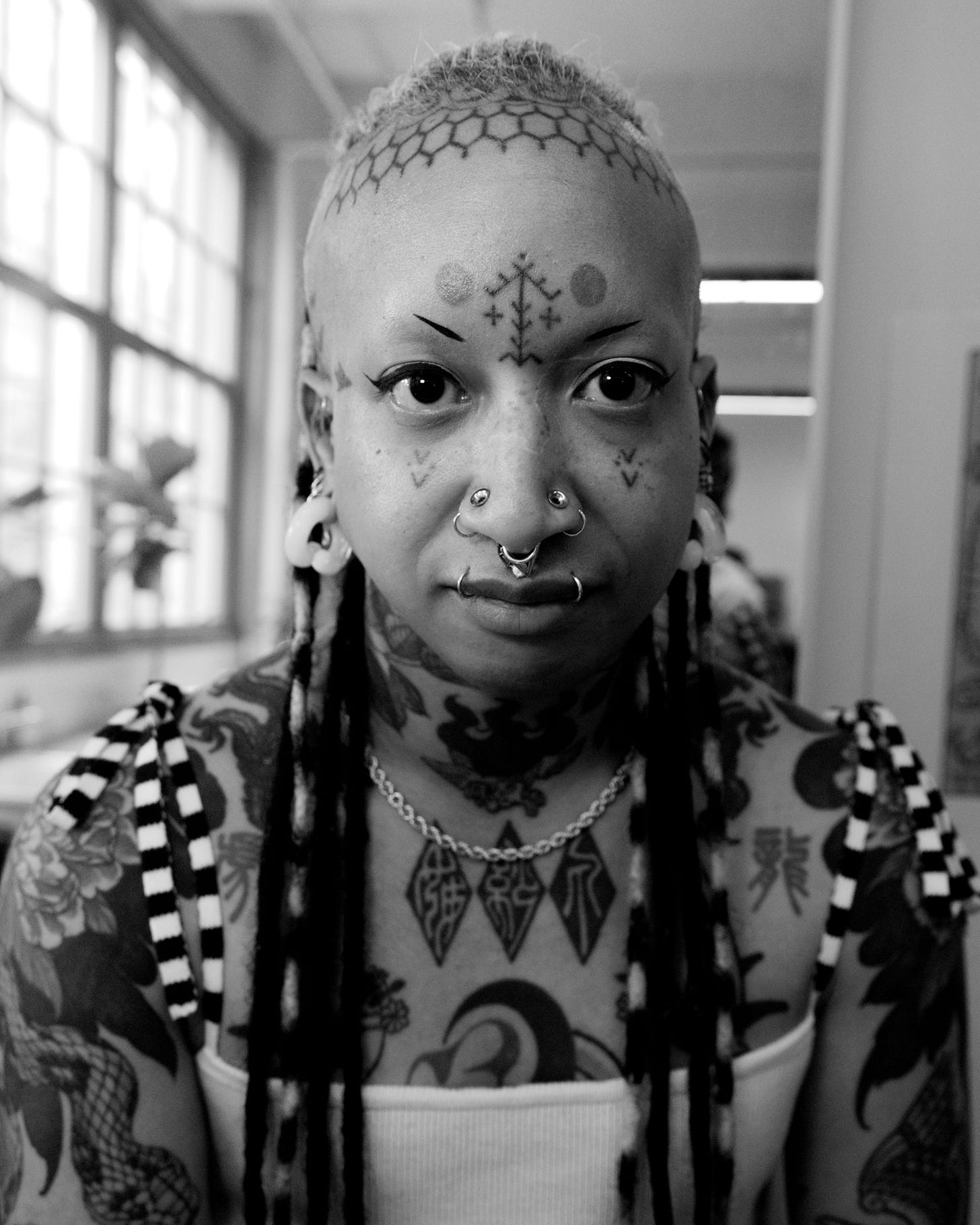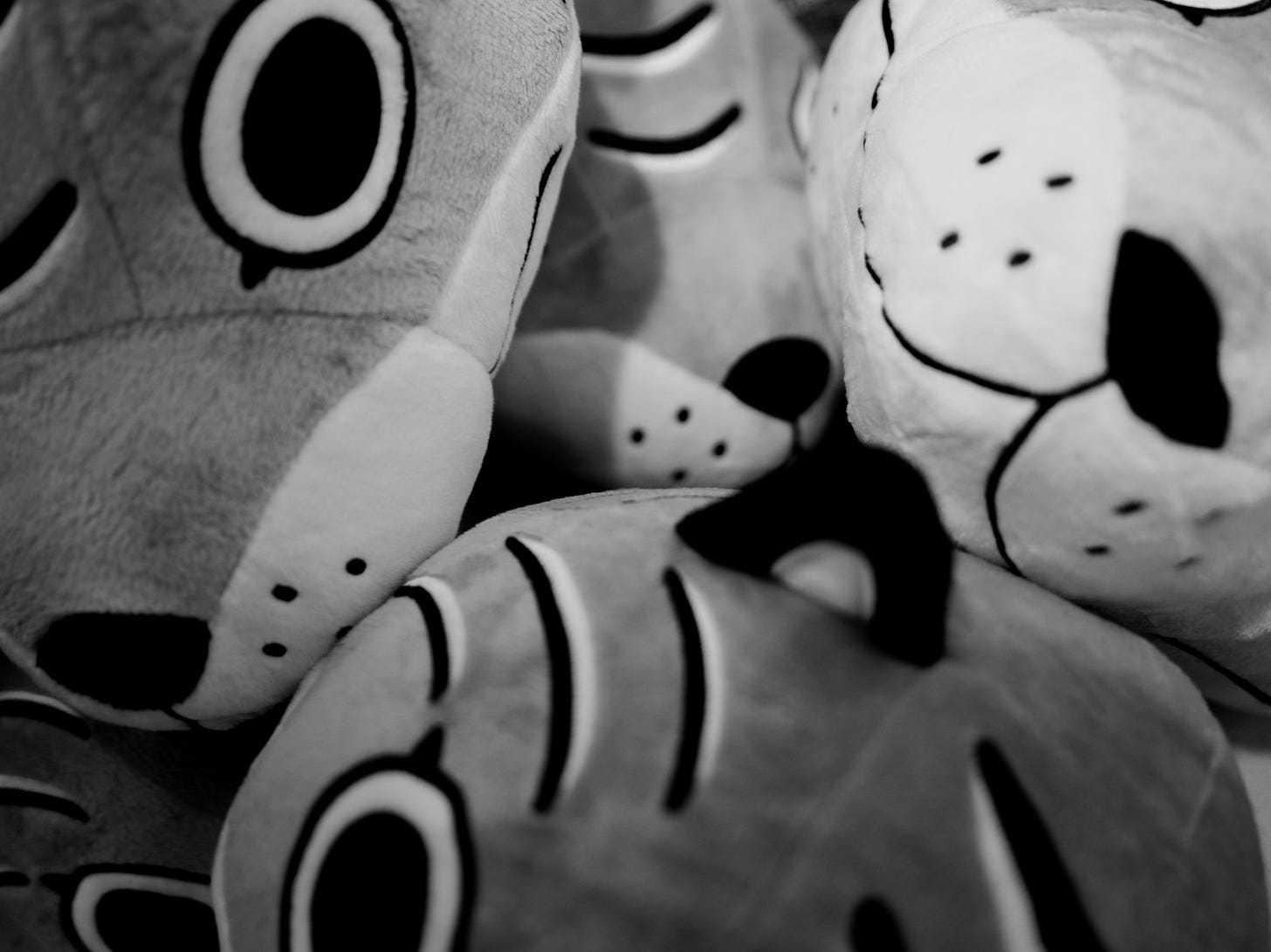ARTIST TO ARTIST
i2’s Featured Artist Gossamer talks to i1’s Uncle Phoebe on how she created a universe of her own through tattoo.
Interview by Uncle Phoebe with Gossamer
Shot by Will Pippin
A member of Co:Create’s curated marketplace of tattoo artists, Brooklyn based i2’s Featured Artist explores identity through her work. Known for graphic twists on traditional folk art and pixelated characters, Gossamer walks i1’s Uncle Phoebe through inspirations, the democratization of tattoo, and the power of hand-poking.
Uncle Phoebe: where are you based / where do you tattoo?
Gossamer: Brooklyn, New York
How long have you been tattooing?
Since 2018, so about 6 years.
How did you get started tattooing?
I’m self taught. I discovered artists using Instagram to promote their unique art style outside of the traditional tattoo shop, where you’d usually be tasked to handle walk-in requests of any style.
When you see your work, it's instantly recognizable. Tell us about your design process and how you settled on this style.
So, my art style is mostly self taught. I’ve been drawing for as long as I can remember. I was inspired by anime, manga, and video games as a child and teenager and later children' s books, and other forms of narrative art. I’ve been studying folk art and textiles around the world for over a decade now. For illustrative work recently I really enjoy Korean Minhwa, traditional painting from China, Japan, and Korea; traditional American and Japanese styles.
What inspires you?
I explore my identity through my work. The majority of my work as a young adult was based on this. Nowadays I’m also trying to live in the present, and the objects and animals I draw reflect that. I try to examine the things that bring me joy or peace.
Do you prefer customs or flash?
I like both. Having a roster of flash is great because I don’t have to do a lot of extra drawing. I spend a lot of time designing my new flash and nowadays they are repeatable. In the past every drawing was one of a kind. I feel like I found a good rhythm to my designs and I know how these drawings look healed several years, so I’m comfortable repeating them. And that gives me more free time to work on intricate, custom designs.
Do you prefer color of black/gray?
Black and gray is fun but I prefer color - I really like the challenge of color, especially working on darker skin tones.
If you weren’t tattooing, what would you be doing?
I don’t tattoo all the time. It’s important for me to practice my other mediums alongside tattooing. I have a hard time being identified solely as a tattoo artist. I see myself as a process artist. The mediums I work in - textile, drawing, sculpture, tattoo - are informed by the meditative, repetitive nature of the processes themselves, that’s how these mediums are linked together.
Was there a moment that made you realize that tattooing was the career you wanted to pursue? If so, what was that like?
I’ve wanted to try tattooing since I was in high school. The only problem was, I didn’t want to tattoo other people’s work. I really wanted to tattoo my own unique designs. I made a tattoo design for myself when I was 17 and got it tattooed ten years later. That was my first tattoo. So I knew it was something I wanted to do for a long time.
Do you think that there is a tie between your technique and your designs?
Yes. It’s unique already that I have a recognizable visual language. This is strengthened by my preference to solely make my tattoos by hand, without a machine. I love working with this process and the control over each individual mark to build lines and fields of color is the reason my tattoos look the way they do. It’s similar to how I draw and color with pencils and ink.
How do you see the tattoo industry changing in the next five years? How has it changed in the last five?
It’s changed a lot because of the internet and social media. Knowledge is much less gate-kept because people can freely share information and safety methods online. That’s one reason I was able to learn how to tattoo and I’ve pushed that forward by sharing my own tutorials publicly. Seeing Phaidon’s recognition of the contemporary tattoo world (Tattoo You: A New Generation of Artists) and the wide selection of styles, traditional, and self-taught artists is particularly telling of how this industry is evolving. The market has become oversaturated with new artists and although that’s tough for folks starting out, I think it’s great. Tattooing provides a special power to humans to change their bodies directly with ink. Regardless if someone wants to make it a job or not, tattooing is a powerful practice and anyone who wants to should try it. Sterile tools are widely available and safety information easier to come by.


